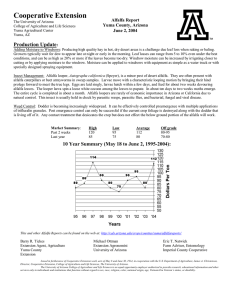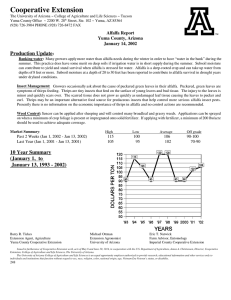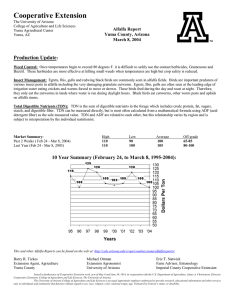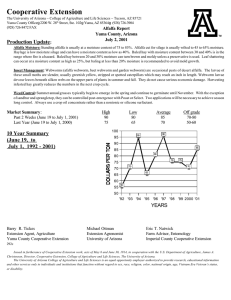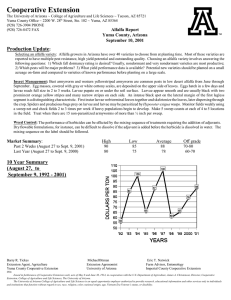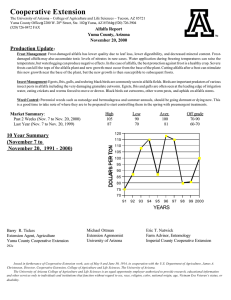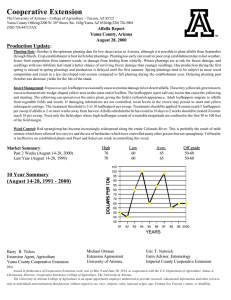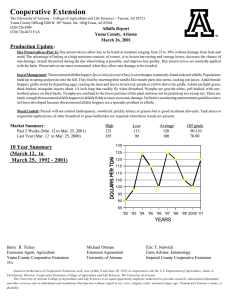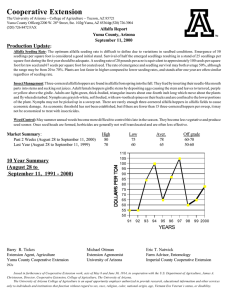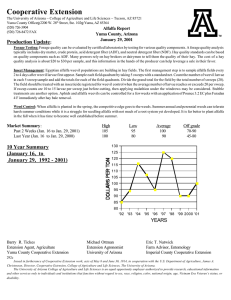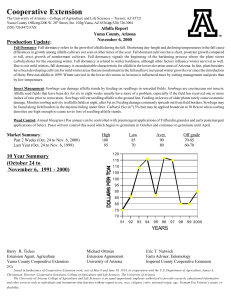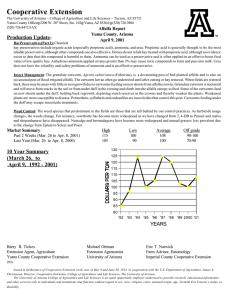Cooperative Extension
advertisement
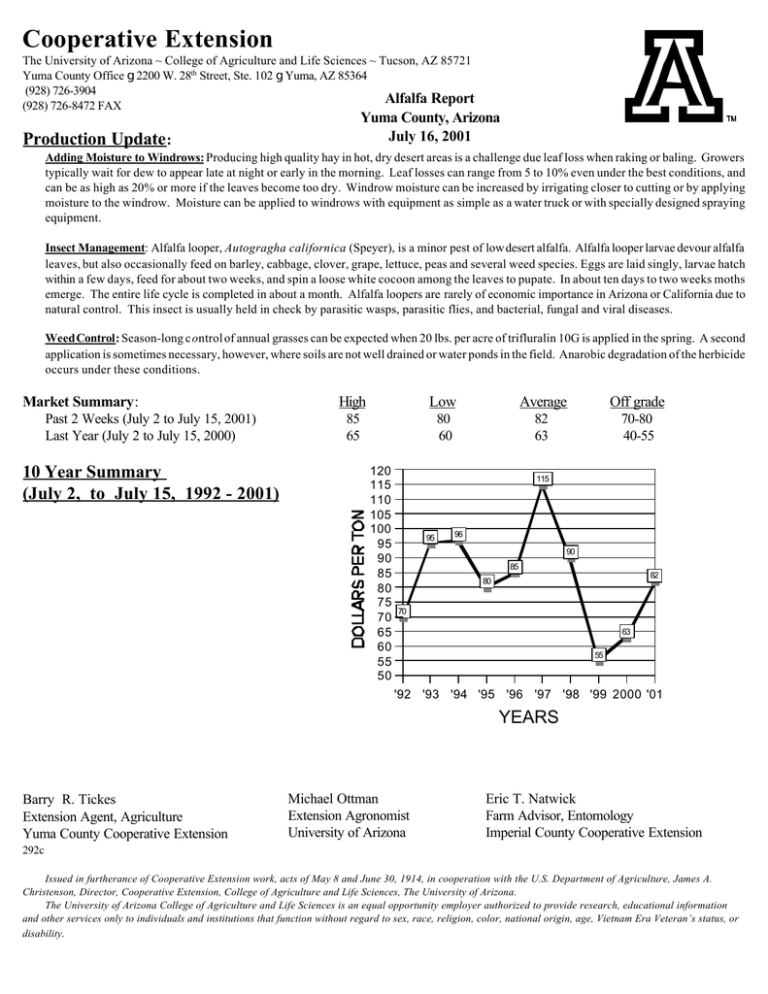
Cooperative Extension The University of Arizona ~ College of Agriculture and Life Sciences ~ Tucson, AZ 85721 Yuma County Office g2200 W. 28th Street, Ste. 102 gYuma, AZ 85364 (928) 726-3904 Alfalfa Report (928) 726-8472 FAX Yuma County, Arizona July 16, 2001 Production Update : Adding Moisture to Windrows: Producing high quality hay in hot, dry desert areas is a challenge due leaf loss when raking or baling. Growers typically wait for dew to appear late at night or early in the morning. Leaf losses can range from 5 to 10% even under the best conditions, and can be as high as 20% or more if the leaves become too dry. Windrow moisture can be increased by irrigating closer to cutting or by applying moisture to the windrow. Moisture can be applied to windrows with equipment as simple as a water truck or with specially designed spraying equipment. Insect Management: Alfalfa looper, Autogragha californica (Speyer), is a minor pest of low desert alfalfa. Alfalfa looper larvae devour alfalfa leaves, but also occasionally feed on barley, cabbage, clover, grape, lettuce, peas and several weed species. Eggs are laid singly, larvae hatch within a few days, feed for about two weeks, and spin a loose white cocoon among the leaves to pupate. In about ten days to two weeks moths emerge. The entire life cycle is completed in about a month. Alfalfa loopers are rarely of economic importance in Arizona or California due to natural control. This insect is usually held in check by parasitic wasps, parasitic flies, and bacterial, fungal and viral diseases. Weed Control: Season-long control of annual grasses can be expected when 20 lbs. per acre of trifluralin 10G is applied in the spring. A second application is sometimes necessary, however, where soils are not well drained or water ponds in the field. Anarobic degradation of the herbicide occurs under these conditions. Market Summary: Past 2 Weeks (July 2 to July 15, 2001) Last Year (July 2 to July 15, 2000) 10 Year Summary (July 2, to July 15, 1992 - 2001) High Low Average Off grade 85 65 80 60 82 63 70-80 40-55 120 115 110 105 100 95 90 85 80 75 70 65 60 55 50 115 95 96 90 85 82 80 70 63 55 '92 '93 '94 '95 '96 '97 '98 '99 2000 '01 YEARS Barry R. Tickes Extension Agent, Agriculture Yuma County Cooperative Extension Michael Ottman Extension Agronomist University of Arizona Eric T. Natwick Farm Advisor, Entomology Imperial County Cooperative Extension 292c Issued in furtherance of Cooperative Extension work, acts of May 8 and June 30, 1914, in cooperation with the U.S. Department of Agriculture, James A. Christenson, Director, Cooperative Extension, College of Agriculture and Life Sciences, The University of Arizona. The University of Arizona College of Agriculture and Life Sciences is an equal opportunity employer authorized to provide research, educational information and other services only to individuals and institutions that function without regard to sex, race, religion, color, national origin, age, Vietnam Era Veteran’s status, or disability.
